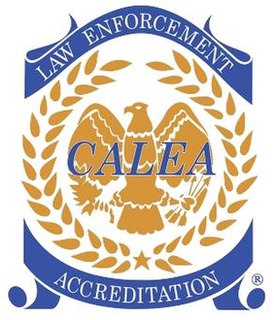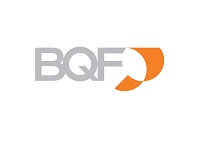The European Quality Award is now referred to as the EFQM Excellence Award.
The Malcolm Baldrige National Quality Award recognizes U.S. organizations in the business, health care, education, and nonprofit sectors for performance excellence. The Baldrige Award is the only formal recognition of the performance excellence of both public and private U.S. organizations given by the President of the United States. It is administered by the Baldrige Performance Excellence Program, which is based at and managed by the National Institute of Standards and Technology (NIST), an agency of the U.S. Department of Commerce.
TickIT is a certification program for companies in the software development and computer industries, supported primarily by the United Kingdom and Swedish industries through UKAS and SWEDAC respectively. Its general objective is to improve software quality.
Quality management ensures that an organization, product or service is consistent. It has four main components: quality planning, quality assurance, quality control and quality improvement. Quality management is focused not only on product and service quality, but also on the means to achieve it. Quality management, therefore, uses quality assurance and control of processes as well as products to achieve more consistent quality. Quality control is also part of Quality Management. What a customer wants and is willing to pay for it, determines quality. It is a written or unwritten commitment to a known or unknown consumer in the market. Thus, quality can be defined as fitness for intended use or, in other words, how well the product performs its intended function.

EFQM is a not-for-profit membership foundation in Brussels, established in 1989 when the CEO/presidents of 67 European companies subscribed to the policy document and declared their commitments to EFQMs missions and values. EFQM works with over 50,000 organisations from across Europe and beyond, including organisations such as BMW, Robert Bosch, Aramco, Siemens and Huawei.

The Commission on Accreditation for Law Enforcement Agencies, Inc. (CALEA) is a credentialing authority (accreditation), based in the United States, whose primary mission is to accredit public safety agencies, namely law enforcement agencies, training academies, communications centers, and campus public safety agencies.

Mohamed Zairi is a British academic and researcher in the field of total quality management and excellence management. Over a period of 35 years, he has been influencing Quality Management Thinking. He is also recognized as a luminary in the Global Quality Horizon. In addition to TQM and Excellence Management, Zairi has immense expertise in areas such as Performance Measurement, Business Process Management, Change Management, Innovation Management, Governance, and Service Improvement.
The Customer Service Excellence, is an accreditation for organisations, intended to indicate an independent validation of achievement.

The Security Industry Authority (SIA) is the statutory organisation responsible for regulating the private security industry in the UK. Established as a non-departmental public body in 2003, the SIA reports to the Home Secretary under the terms of the Private Security Industry Act 2001.
Institute for Productivity & Human Resource Development (IPHRD) is an Iranian organization and a subsidiary of IDRO established since 1987.

The Civic Trust Awards scheme was established in 1959 to recognise outstanding architecture, planning and design in the built environment.

BQF is an independent, not-for-profit corporate membership organisation and was founded by the Department for Trade and Industry and UK business leaders in 1993.

The international Robert W. Campbell Award honors companies that achieve business excellence by integrating EHS management into business operations. Built upon rigorous scientific evaluation, the Campbell Award uses an evidence-based case study approach to catalyze transforming the landscape of EHS worldwide.. To promote leading-edge integrated management systems and to educate. Influence leaders across national and cultural borders, exemplary Campbell Award submittals are shared with organizations and educational institutes through the Award's twenty-two Global Partner organizations network.

Adriano Ruchini is an Italian businessman.
The Common Assessment Framework (CAF) is the common European quality management instrument for the public sector. It is a free tool to assist public sector organisations to improve their performance. The CAF helps the organisations to perform a self-assessment with the involvement of all staff, to develop an improvement plan based on the results of the self-assessment and to implement the improvement actions. The model "is based on the premise that excellent results in organisational performance, citizens/customers, people and society are achieved through leadership driving strategy and planning, people, partnerships and resources, and processes. It looks at the organisation from different angles at the same time, the holistic approach of organisation performance analysis." On 7 September 2011, 2382 public sector organisations from 43 different nationalities or from the EU institutions were registered as CAF users in the CAF Database.
The Canada Awards for Excellence are the national quality awards of Canada. They are administered by Excellence Canada, a not-for-profit organization on behalf of the Governor General of Canada. Industry Canada established the awards in 1984 as the Canadian Business Excellence Awards. The National Quality Institute (NQI) was spun off as a separate, self-sustaining entity to administer the awards in 1992 and became Excellence Canada in 2011. While originally intended for profitmaking Canadian firms, the awards are now open to government agencies and not-for-profit organizations.
Villa Massa is a brand of limoncello produced in the Sorrento peninsula of the region of Campania, Italy.

The Ministry of Human Resources and Social Development is a government ministry in Saudi Arabia was established in 2019 after merging Ministry of Labour and Social Development with Ministry of Civil Service. It is responsible for providing the community with development, support, and protection. The Ministry is also in charge of labor affairs and its related issues and policies. The current Minister is Ahmed al-Rajhi who was appointed in June 2018.
According to the Global Competitiveness Report 2019, compared to the previous year, the Kingdom advanced 13 ranks in the labor and production market efficiency index. Also, it advanced 17 ranks from 2018 in both the “Small and Medium Enterprises Finance” and “Availability of venture capital” respectively, moving up 5 ranks in human capital skills, innovation ability and business dynamics.
The Ministry was able to gain EFQM certificate from the European Foundation for Quality Management EFQM as the first entity in the Kingdom. It obtained this certificate in the year 2021 after it was able to successfully comply with the standards of the European Institutional Excellence Model through several areas, including: developing an electronic friendly settlement system, Raising the efficiency of spending and rationalizing consumption in the field of unified transport, and unifying methods of communication with the ministry's beneficiaries through the unified call center.
Zimbabwe Institute of Management is a membership based and non-profit making management organisation founded in 1957 with the main goal of promoting and developing best practices in management and leadership. The Institute's membership is categorised into individual, corporate and student members. Its range of products include executive diplomas in Business Leadership, General Management, Applied Strategy, Sports Management as well as diplomas in Business Administration, Project Management, Environmental Health & Safety Management, Supervisory Management and Security Management. The Institute also offers certificate courses in various fields of management in addition to customised in-house programmes to corporate clients.








